Federal funding plays a significant role in the economies of many U.S. states. Congress determines the total funding available for various programs and defines the eligibility criteria and spending parameters through legislation. While some states are more self-sufficient, we explore 25 states that depend on government funding to survive:
West Virginia
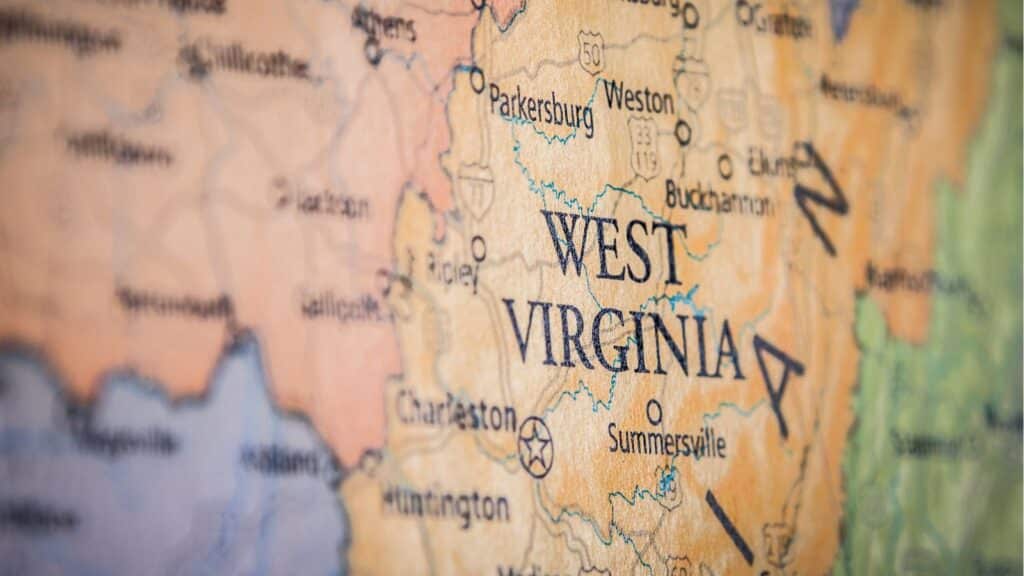
West Virginia received nearly $92.4 billion in federal funds from 2020 to 2023. This is significantly higher than any previous four-year period since 2008 and more than any other U.S. state. Federal funding accounts for 45.16% of its income, and things have been this way since the coal industry’s decline, which has resulted in significant job losses, population decline, and reduced tax revenue for the state.
New Mexico

41.8% of state revenue makes up New Mexico’s overall income and is reflective of the economic difficulties the state is facing. The state’s economy has traditionally depended on resource-extraction industries like oil, gas, and mining. These industries are subject to fluctuating global commodity prices, creating economic prosperity and decline cycles.
Mississippi
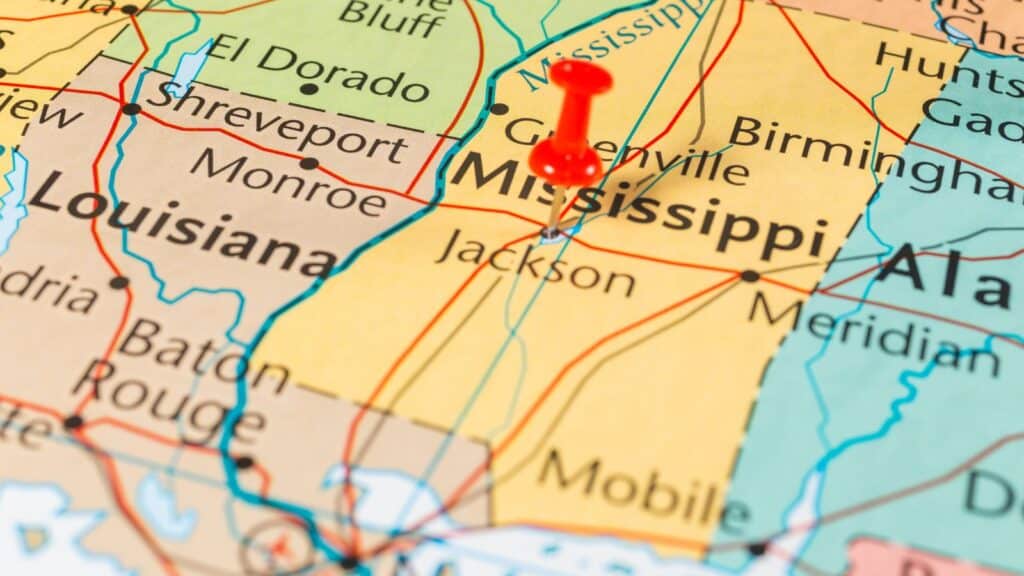
Mississippi is one of the states with the highest dependence on federal funding. It receives $2.53 in federal funding for every dollar paid in state income taxes. The economy has historically relied heavily on agriculture and manufacturing, particularly in sectors like textiles and furniture, which have experienced decline due to factors like globalization and automation.
Alabama

3.33% of Alabama’s workforce is employed by the federal government, highlighting federal jobs within the state. In total, 41.20% of Alabama’s revenue comes from federal sources. Resource extraction industries like oil and gas contribute to the state’s economy but are subject to fluctuations in global commodity prices, leading to instability.
Alaska

50.83% of Alaska’s revenue comes from federal sources, one of the highest among all states. This equates to $1.62 in federal funding for every $1 it contributes in income taxes and also means the government owns over 60% of Alaska’s land.
Idaho
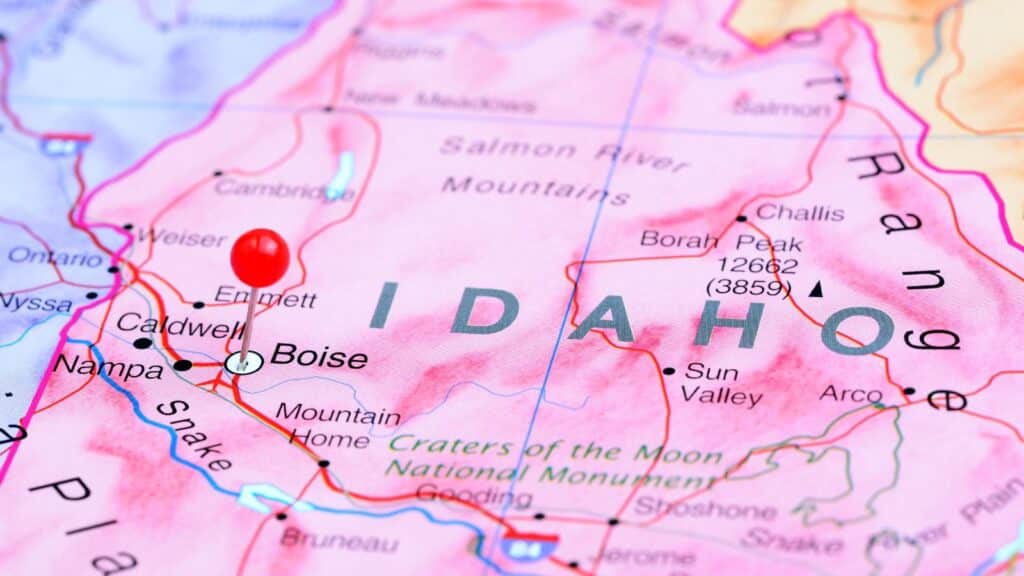
The federal government employs 2.75% of Idaho’s workforce, indicating a relatively high proportion of federal jobs within the state. Over 50% of the state’s land is owned by the federal government, suggesting a close connection between federal land management and the state’s economy. This impacts various sectors like agriculture and tourism, which supplement the 41.08% of the state’s revenue from federal sources.
Maine

Maine receives slightly more than $1 in federal funding for every $1 it contributes in income taxes. Federal employees in the state earn 1.74 times more than their private-sector counterparts. One of the critical federal aid in Maine is the Community Development Block Grant (CDBG), and the Rural Development Administration (RDA) provides funding to support economic development, housing, and infrastructure in rural areas.
Wyoming

The percentage of state revenue from federal aid in Wyoming is 56.43%, higher than the national average. The federal government owns a significant portion of the land in Wyoming and receives royalties from mining and resource extraction activities. This contributes to the state’s revenue stream and establishes a connection between federal policy and the economy.
Montana

The federal funding to income tax ratio in Montana is 1.04, indicating that Montana receives slightly more than $1 in federal funding for every $1 it contributes in income taxes. 46.58% of the total income benefits from various federal programs and grants supporting essential services like healthcare (Medicaid).
Delaware

Delaware receives moderate federal funding, with 38.79% of its revenue coming from federal sources. Delaware has a relatively small population compared to many other states. This can impact the overall federal funding received through population-based programs like Medicaid.
Rhode Island

The percentage of state revenue from federal aid for Rhode Island is 43.72%, around the national average. Federal programs contribute to funding public education in Rhode Island, including programs like Title I which supports schools with high percentages of low-income students.
Arizona

Arizona leans on federal support for 47.44% of its income. The state’s economy relies on specific sectors like tourism and construction. This can lead to vulnerability when those sectors face difficulties.
Vermont

Vermont’s economy relies heavily on tourism, agriculture, and manufacturing, which can be sensitive to external factors like economic downturns, volatile commodity prices, and changing consumer preferences. This instability means the state receives federal funding for 43.55% of its revenue.
South Dakota
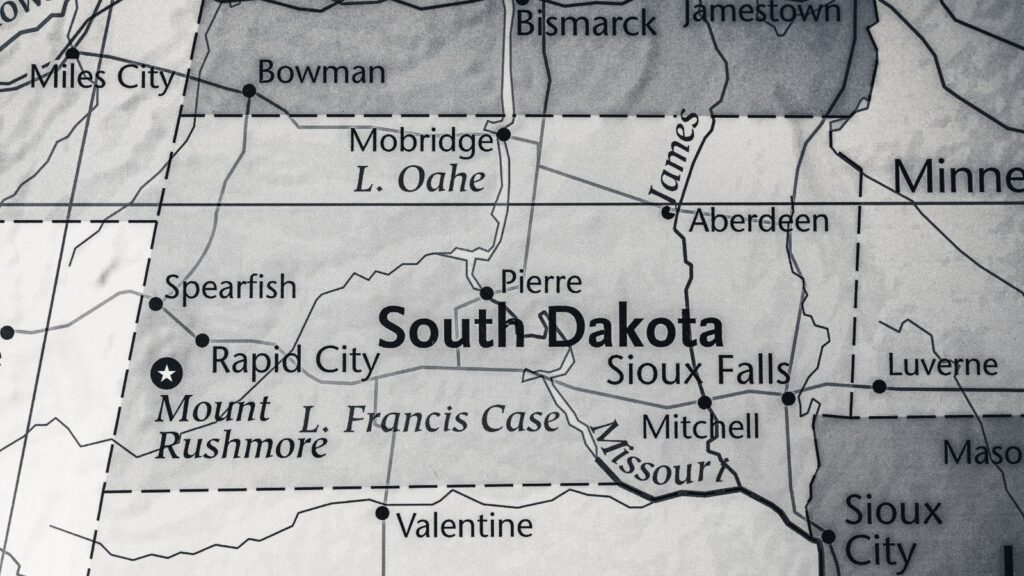
South Dakota receives one of the highest proportions of federal funding among all states, with 50.93% of its revenue coming from federal sources. This state also has a high ratio of 1.04 for federal funding to income taxes paid. Additionally, 3.14% of its workforce is employed by the federal government.
Kentucky
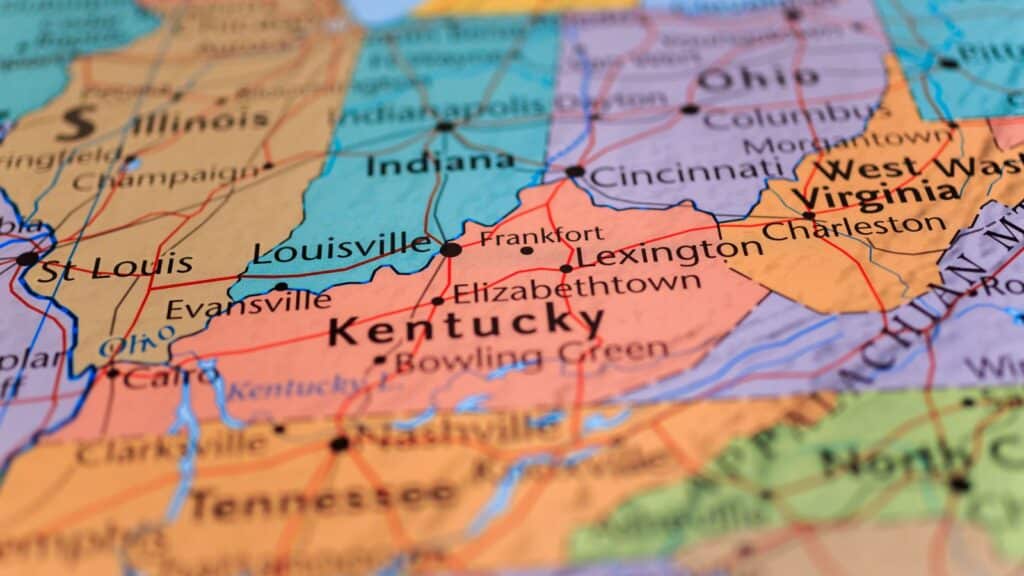
Kentucky receives a significant portion of its revenue from federal funding, with 44.55% coming from this source. This is higher than the national average. Additionally, the state’s ratio of federal funding to income taxes paid is 1.68, indicating it receives more federal funding than it contributes in income taxes. However, the presence of federal employees in Kentucky is relatively modest, with 2.14% of the workforce employed by the federal government.
Maryland

Maryland receives moderate federal funding, with 33.88% of its revenue coming from federal sources. This is lower than the national average. Additionally, the state has a low ratio of 0.51 for federal funding to income taxes paid, indicating it receives less federal funding than it contributes in income taxes.
Tennessee

Tennessee receives a significant portion of its revenue from federal funding, with 40.28% coming from this source. This places it above Oklahoma in terms of reliance on federal funding. The state’s ratio of federal funding to income taxes paid is 0.69, indicating it receives less federal funding than it contributes in income taxes.
Oklahoma
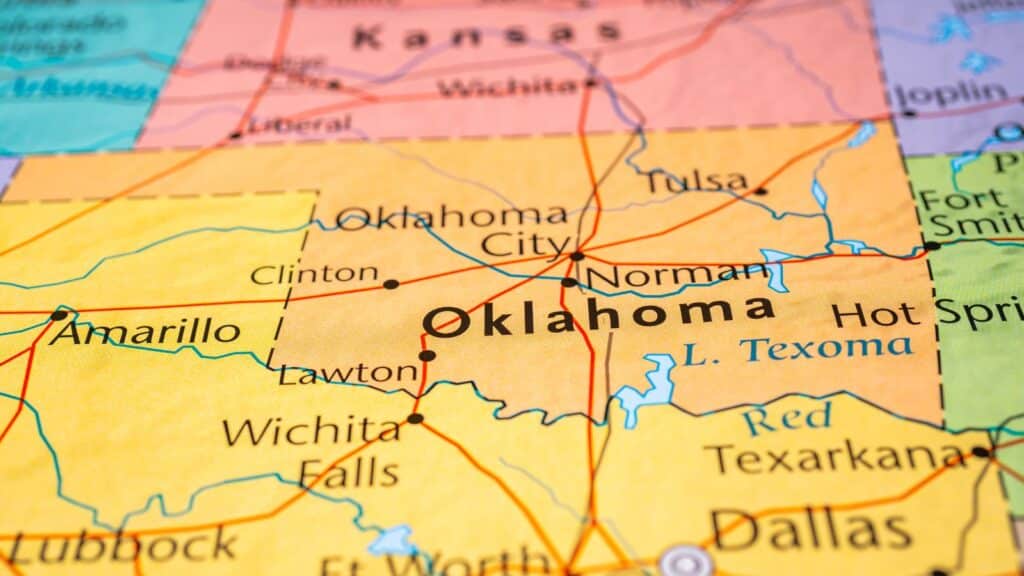
Oklahoma receives moderate federal funding, with 37.24% of its revenue coming from federal sources. While this is lower than the national average, it is still higher than several other states. The Oklahoma economy leans heavily on oil and gas production and agriculture. While these sectors can be crucial, they are also susceptible to external factors like volatile commodity prices and fluctuations in global demand.
Arkansas
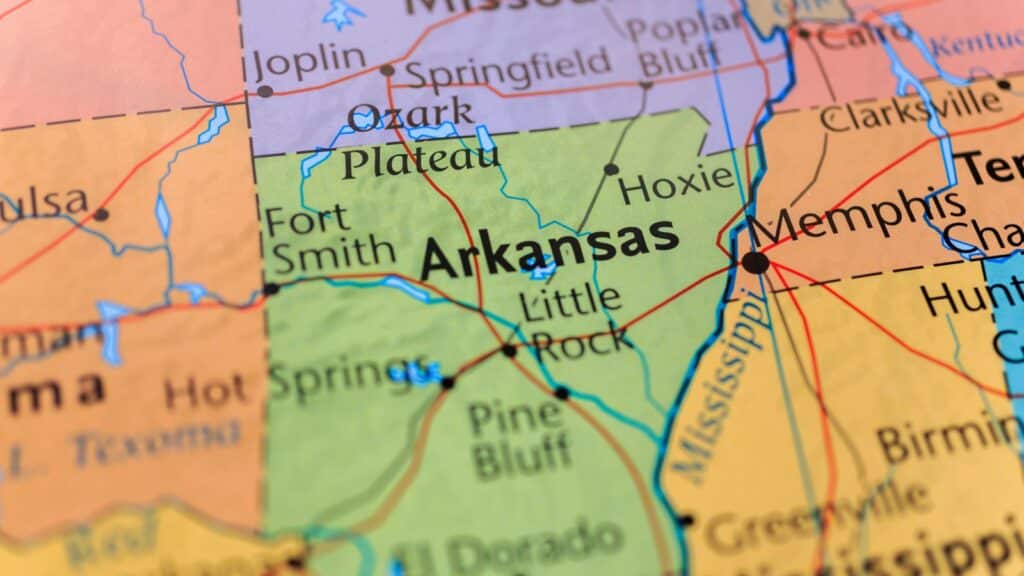
Arkansas receives a substantial amount of federal funding in comparison to the income taxes it pays, with a ratio of 3.39. This places it first among all states in this metric. However, the state has a relatively moderate percentage of its workforce employed by the federal government, at 1.97%.
Missouri

Missouri relies on federal funding for a significant portion of its revenue, with 45.47% coming from this source. Rural areas often have higher infrastructure development and service provision costs than urban areas. This could lead to a need for increased federal assistance, especially if the state’s tax base is limited.
Hawaii

Hawaii has a low federal share of state revenue at 27.13%. Still, it has a high percentage of federal employees, and military installations and contracts play a vital role in the state’s economic structure.
Ohio
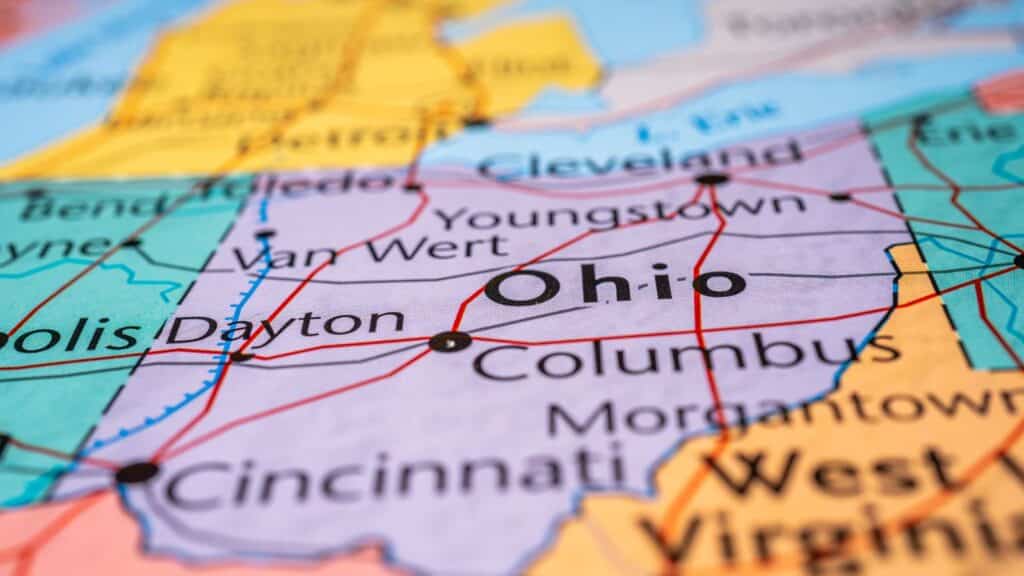
Ohio receives a slightly more significant portion of its revenue from federal funding (39.72%) than some states, but it is certainly not the highest. Aging infrastructure can hinder economic growth and competitiveness, requiring significant investments for upgrades and maintenance, which is the case in Ohio.
South Carolina

South Carolina receives a more significant portion of its revenue (38.61%) from federal funds compared to the national average. Additionally, the state has a higher ratio of federal funding to income taxes paid (0.85), indicating it receives more federal funding than it contributes in income taxes. This translates to roughly $0.85 in federal funding received for every dollar paid in state income taxes.
Virginia

Virginia receives a moderate portion of its revenue (29.28%) from federal funding. This is below the national average and places it at the 25th position among states regarding federal funding reliance. Similarly, the state’s ratio of federal funding to income taxes paid is relatively low at 0.45, indicating it receives less federal funding than it contributes in income taxes.
North Carolina

North Carolina’s total income consists of 32.7% federal funding. According to the Urban Institute, the state also received $5.4 billion in direct state fiscal aid and $2.7 billion in local government aid from the federal government under the American Rescue Plan.
19 Grim Realities of Dating After 50 That Are Often Overlooked

19 Grim Realities of Dating After 50 That Are Often Overlooked
26 Things That Will Be Extinct Because Millennials Refuse to Buy Them

26 Things That Will Be Extinct Because Millennials Refuse to Buy Them
24 Outdated Slang Terms You Absolutely Shouldn’t Be Using Anymore

24 Outdated Slang Terms You Absolutely Shouldn’t Be Using Anymore
25 Hardest Parts About Getting Older That No One Ever Talks About

25 Hardest Parts About Getting Older That No One Ever Talks About




